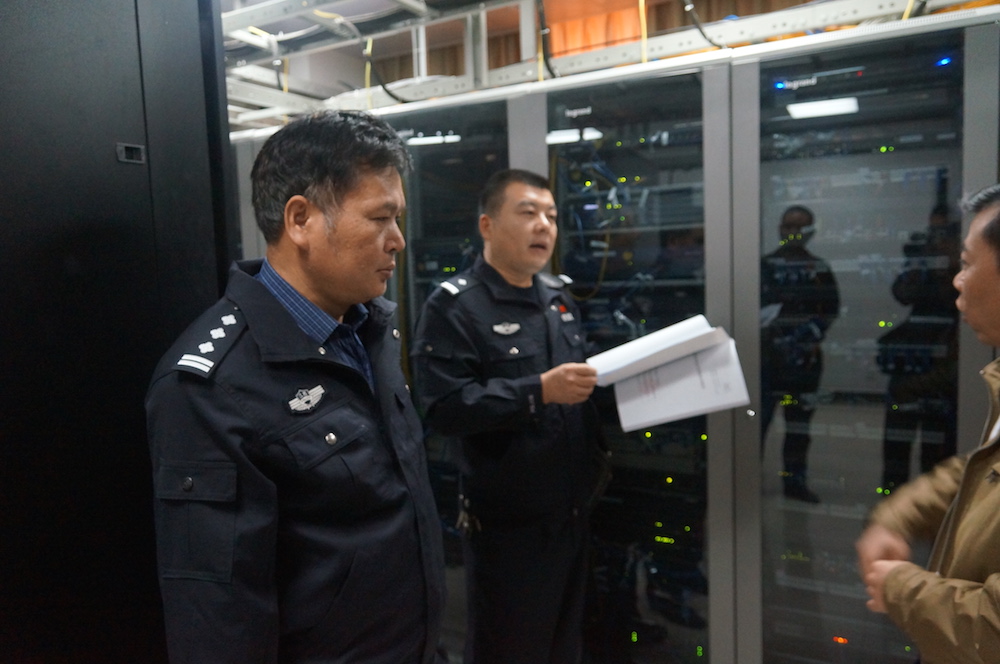Blogger “Xiaolan” has leaked an archive of the email communications of the Internet Information Office of Zhanggong District, Ganzhou City, Jiangxi from 2013 and 2014. The archive includes correspondence, photos, directories of “Internet commentators” (网评员), summaries of commentary work, and records of the online activities of specific individuals, among other documents. Over 2,700 emails are included in the archive, many of which include attachments of Microsoft Word documents.
Xiaolan calls the leak “evidence of the work of the Fifty Cent Party” (见证五毛党的工作), referring to commentators who are paid to write online in favor of government policies, attacking “public intellectuals,” boosting Xi Jinping’s image, and monitoring netizens’ activities. One list of commentators [Chinese] includes job titles after each name. While a “fifty center” may invoke late-night posters making money on the side, the commentators listed in this directory are cadres and officials. The QQ numbers and Weibo usernames of commentators are exposed in the lists. In all, three full-time staff and over 300 Internet commentators are listed for the Zhanggong District, which in 2013 had a population of 468,461 with local household registration (hukou), according to official data [Chinese].
One document summarizes the anti-terrorism posts [Chinese] by Weibo user 亥时热评 as of July 2013, who lists his/her residence as Beijing. (S)he has 3.36 million followers and a verified account. One point reads: “Seriously striking back against violent terror according to the law is the sincere hope of the people of all nationalities” (依法严厉打击暴力恐怖犯罪是各族人民的共同心愿).
Another document tracks the online activity of a particular user across different social media accounts and forums, noting that he posts under his wife’s name.
The archive reveals one small node of a vast national censorship system. Zhanggong commenters often post to national forums, such as People’s Daily online, reflecting top-down “public opinion guidance.” The Zhanggong Internet Information Office is a branch of the city office, which is in turn overseen by the provincial office, and ultimately administered by the Cyberspace Administration of China. The head of the national ministry, Lu Wei, is currently in Washington at the U.S.-China Internet Industry Forum.
CDT Chinese has published a number of the leaked documents here. Xiaolan’s original blog post, including instructions for downloading the full archive, has also been copied to CDT Chinese.









